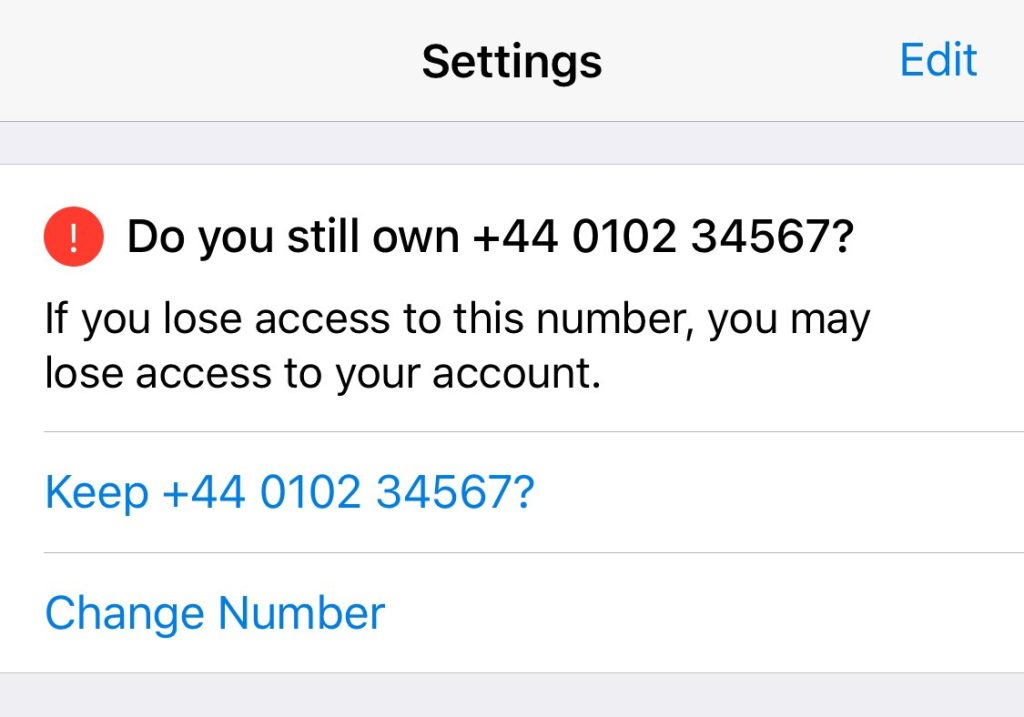
Trust Wallet itself doesn’t charge fees, but network fees apply for transactions, varying by blockchain congestion and type.
Understanding Trust Wallet Fees
What Fees Are Charged by Trust Wallet?
Trust Wallet itself does not charge any direct fees for using its services. However, users may encounter fees associated with the underlying blockchain networks when performing transactions. Here are the key points:
- Network Fees: These are fees required to process transactions on a blockchain network. They are paid to miners or validators who secure and maintain the network.
- Transaction Costs: Each transaction, such as sending or receiving cryptocurrency, involves a network fee. The amount varies depending on the blockchain and current network conditions.
- Swap Fees: When using the built-in DEX (decentralized exchange) features to swap tokens, there may be additional fees. These can include liquidity provider fees and network fees for executing the swaps.
How Are Fees Calculated?
The calculation of fees in Trust Wallet depends on several factors, primarily related to the blockchain network being used. Here’s how they are generally determined:
- Network Congestion: Fees can increase during times of high network congestion when many users are trying to process transactions simultaneously. This is common in networks like Ethereum.
- Transaction Complexity: More complex transactions, such as those involving smart contracts, typically incur higher fees due to the additional computational resources required.
- User-Set Fees: Trust Wallet allows users to adjust their transaction fees. Higher fees usually result in faster transaction confirmations, while lower fees may save money but take longer to process.
- Base Fee Rates: Each blockchain network has a base fee rate that varies. For example, Bitcoin and Ethereum have different base fee structures influenced by their respective consensus mechanisms and network dynamics.

Network Fees
Explanation of Network Fees
Network fees, also known as transaction fees or gas fees, are essential components of blockchain transactions. Here’s a detailed look at what they entail:
- Purpose of Network Fees: These fees are paid to miners or validators who process and confirm transactions on the blockchain. They incentivize these participants to secure the network and validate transactions.
- Components of Network Fees:
- Base Fee: A fixed amount required for processing a transaction on the network.
- Priority Fee (Tip): An additional fee that can be included to prioritize a transaction. Higher priority fees typically result in faster transaction processing.
- Fee Calculation: Network fees are calculated based on the size and complexity of the transaction. For example, transactions involving smart contracts or multiple inputs and outputs may incur higher fees due to the additional computational resources required.
How Network Congestion Affects Fees
Network congestion significantly impacts the cost and speed of transactions on blockchain networks:
- Increased Fees During Congestion: When a blockchain network experiences high traffic, the demand for transaction processing exceeds the available capacity. As a result, users must pay higher fees to have their transactions processed quickly.
- Priority Handling: During congestion, miners or validators prioritize transactions with higher fees. Users who set higher priority fees (tips) can expedite their transactions, while those with lower fees may experience delays.
- Volatility of Fees: Network fees can be highly volatile, fluctuating based on network activity and congestion. For example, during popular events or high trading volumes, fees on networks like Ethereum can spike significantly.
- Strategies to Manage Fees: Users can manage fees by:
- Monitoring Network Conditions: Using tools and trackers to check current network congestion and fee rates.
- Timing Transactions: Scheduling transactions during off-peak hours when the network is less congested can help reduce fees.
- Adjusting Fee Levels: Trust Wallet allows users to customize their transaction fees, balancing cost and transaction speed according to their needs.
Transaction Fees for Different Cryptocurrencies
Bitcoin Transaction Fees
Bitcoin transaction fees are an essential consideration for users transferring BTC. Here’s an overview of how these fees work:
- Fee Structure: Bitcoin fees are calculated based on the size of the transaction in bytes. Larger transactions with more inputs and outputs require more computational resources and thus incur higher fees.
- Dynamic Fees: Bitcoin transaction fees are dynamic and fluctuate based on network demand. During periods of high transaction volume, fees can increase significantly.
- Priority and Speed: Users can set higher fees to prioritize their transactions, ensuring faster confirmation times. Lower fees may result in longer wait times, especially during network congestion.
- Tools for Estimation: Various online tools and Bitcoin wallets, including Trust Wallet, provide fee estimation features, helping users determine an appropriate fee to include for their transaction.
- Historical Trends: Bitcoin fees can vary widely over time, influenced by factors such as market activity, network upgrades, and changes in user behavior. Monitoring historical trends can help users anticipate fee fluctuations.
Ethereum Gas Fees
Ethereum gas fees, often referred to as “gas,” are crucial for executing transactions and smart contracts on the Ethereum network. Here’s how they function:
- Gas Units and Prices: Gas is measured in units, with each operation in a transaction or smart contract requiring a specific amount of gas. The price of gas is denoted in Gwei, a subunit of ETH.
- Complexity and Cost: More complex transactions, such as those involving smart contracts or multiple token transfers, require more gas and thus higher fees. Simple transactions, like sending ETH from one wallet to another, typically use less gas.
- Network Congestion: Like Bitcoin, Ethereum gas fees are dynamic and rise with network congestion. High demand periods, such as during popular decentralized finance (DeFi) activities or NFT launches, can cause significant fee spikes.
- Gas Limits: Users set a gas limit for their transactions, which is the maximum amount of gas they are willing to pay. If the transaction consumes less gas than the limit, the unused portion is refunded.
- Fee Estimation Tools: Trust Wallet and other Ethereum wallets offer tools to estimate gas fees based on current network conditions. Users can choose between fast, average, and slow transaction speeds, with corresponding fee recommendations.
- Layer 2 Solutions: To mitigate high gas fees, users can explore Layer 2 solutions like Optimistic Rollups or sidechains, which process transactions off the main Ethereum chain, reducing costs and improving speed.

Fee Adjustment Options
Customizing Your Transaction Fees
Trust Wallet provides users with the flexibility to customize their transaction fees, allowing for a balance between cost and transaction speed. Here’s how users can adjust their fees:
- Accessing Fee Settings: When initiating a transaction in Trust Wallet, users can access the fee settings before confirming the transaction. This option is typically found in the transaction details section.
- Setting Fee Levels: Users can choose from different fee levels, such as:
- Low: Lower fees result in slower transaction confirmations, suitable for non-urgent transactions.
- Medium: Balanced fees offer a reasonable compromise between cost and speed.
- High: Higher fees prioritize the transaction, ensuring faster confirmation times.
- Custom Fees: Advanced users can manually enter their desired fee amount. This is particularly useful for fine-tuning the balance between speed and cost based on real-time network conditions.
- Gas Limit for Ethereum: For Ethereum transactions, users can also adjust the gas limit. This sets the maximum amount of gas they are willing to pay for the transaction, with any unused gas refunded if the transaction requires less.
Benefits of Adjusting Fees
Customizing transaction fees in Trust Wallet offers several advantages, enhancing the overall user experience:
- Cost Savings: By adjusting fees based on the urgency of the transaction, users can save money during periods of low network congestion. Opting for lower fees when immediate confirmation is not required can result in significant cost savings.
- Optimized Transaction Speed: Users can ensure faster transaction processing by setting higher fees during times of high network congestion. This is especially useful for time-sensitive transactions where delays are not acceptable.
- Flexibility and Control: Customizable fees provide users with greater control over their transactions. They can tailor the fee settings to match their specific needs and preferences, whether they prioritize speed or cost.
- Real-Time Adjustments: The ability to manually adjust fees allows users to respond to real-time network conditions. This dynamic approach helps users navigate varying congestion levels and fee fluctuations more effectively.
- Transparency: Trust Wallet’s fee customization feature enhances transparency, allowing users to see the estimated confirmation times and associated costs for different fee levels. This helps in making informed decisions.
- User Empowerment: By offering detailed control over transaction fees, Trust Wallet empowers users to manage their cryptocurrency more efficiently, aligning with their financial strategies and goals.

Comparison with Other Wallets
Trust Wallet vs. Other Mobile Wallets
- User Interface and Experience:
- Trust Wallet: Intuitive and user-friendly, supports a wide range of cryptocurrencies.
- MetaMask Mobile: Focused on Ethereum and ERC-20 tokens, user-friendly.
- Coinbase Wallet: Simple interface, integrates with Coinbase exchange, but limited asset support compared to Trust Wallet.
- Security Features:
- Trust Wallet: Local private key storage, biometric authentication, recovery phrase.
- Exodus Mobile: Similar security, but Trust Wallet is open-source.
- Atomic Wallet: Secure with backup seed phrase, but Trust Wallet integrates better with DApps.
- Fee Management:
- Trust Wallet: Customizable transaction fees.
- MetaMask Mobile: Fee adjustment for Ethereum gas fees.
- Coinomi: Customizable fees, but fewer DApp integrations.
- Cryptocurrency Support:
- Trust Wallet: Extensive cryptocurrency support.
- Coinbase Wallet: Limited to assets on Coinbase.
- Edge Wallet: Broad support, less DApp integration.
Trust Wallet vs. Desktop Wallets
- Accessibility:
- Trust Wallet: Mobile-only, on-the-go access.
- Exodus Desktop: Desktop and mobile versions.
- Electrum: Desktop-focused, advanced Bitcoin features.
- User Interface and Experience:
- Trust Wallet: Simplified mobile interface.
- Exodus Desktop: Visual and user-friendly.
- Electrum: Technical, advanced for Bitcoin.
- Security Features:
- Trust Wallet: Mobile security, local key storage, biometric authentication.
- Ledger Live: Top-tier security with hardware wallet.
- Electrum: Multi-signature, hardware wallet support.
- Fee Management:
- Trust Wallet: Customizable fees.
- Exodus Desktop: Fee adjustment options.
- Electrum: Detailed fee customization for Bitcoin.
- Cryptocurrency Support:
- Trust Wallet: Wide range and DApp integration.
- Exodus Desktop: Multiple cryptocurrencies, portfolio tracking.
- Electrum: Primarily Bitcoin, advanced features.

Minimizing Fees
Strategies to Reduce Transaction Costs
To effectively minimize transaction costs when using Trust Wallet, consider the following strategies:
- Use Cryptocurrencies with Lower Fees: Some cryptocurrencies have inherently lower transaction fees. For example, Litecoin (LTC) and Ripple (XRP) typically offer lower fees compared to Bitcoin (BTC) and Ethereum (ETH).
- Optimize Gas Fees: For Ethereum transactions, you can use gas optimization tools to set the most efficient gas price. Trust Wallet allows you to adjust the gas fee according to current network conditions.
- Batch Transactions: Combine multiple transactions into one to reduce the total number of transactions and save on fees. This is particularly useful for businesses or frequent senders.
- Layer 2 Solutions: Utilize Layer 2 solutions like the Lightning Network for Bitcoin or Optimistic Rollups for Ethereum, which offer lower transaction fees and faster processing times.
- Use Decentralized Exchanges (DEXs): Trust Wallet integrates with various DEXs that might offer lower trading fees compared to centralized exchanges. Research and choose the most cost-effective DEX.
Timing Transactions to Save on Fees
Timing your transactions can significantly affect the fees you pay. Here are some tips on when to transact:
- Avoid Peak Times: Network fees often spike during peak usage times. By monitoring network activity, you can choose to send transactions during off-peak hours when fees are lower.
- Monitor Network Congestion: Use tools like Etherscan for Ethereum or Mempool.space for Bitcoin to check current network congestion and estimated fees. This helps you decide the best time to transact.
- Weekends and Nights: Network activity tends to be lower during weekends and late nights, which can be an ideal time for lower fees.
- Set Custom Fees: Trust Wallet allows you to set custom fees. If your transaction is not urgent, you can set a lower fee and wait for it to be processed when network congestion decreases.

User Experiences and Feedback
Reviews on Trust Wallet Fees
User feedback on Trust Wallet’s fee structure is generally positive, highlighting several key points:
- Customization Options: Users appreciate the ability to customize transaction fees, allowing them to choose between faster transaction times and lower costs.
- Transparency: Many users commend Trust Wallet for providing clear information about network fees before confirming transactions, which helps them make informed decisions.
- Competitive Fees: Compared to other wallets, Trust Wallet is often praised for its competitive fee structure, especially for Ethereum and Binance Smart Chain transactions.
Common Complaints and Solutions
Despite positive feedback, there are common complaints about Trust Wallet fees and potential solutions:
- High Fees During Congestion:
- Complaint: Users often experience high transaction fees during peak network congestion, particularly on the Ethereum network.
- Solution: Trust Wallet allows users to adjust their gas fees and choose optimal times for transactions. Utilizing Layer 2 solutions and monitoring network conditions can also help mitigate high fees.
- Complex Fee Adjustment:
- Complaint: Some users find the process of adjusting fees complex and confusing, particularly those new to cryptocurrency.
- Solution: Trust Wallet offers detailed guides and support articles to help users understand how to set and adjust fees effectively. Simplifying the fee adjustment interface could further assist beginners.
- Slow Transaction Times with Low Fees:
- Complaint: Transactions set with lower fees can take a long time to be confirmed, causing frustration for users who need timely transactions.
- Solution: Trust Wallet provides fee customization options, enabling users to balance between lower costs and faster transaction times. Educating users on the trade-offs can help them set appropriate fees based on their urgency.
- Lack of Fee Estimation Tools:
- Complaint: Some users feel that more advanced fee estimation tools could help them better predict transaction costs.
- Solution: Integrating more robust fee estimation tools within Trust Wallet, similar to those found on Etherscan or Mempool.space, could enhance user experience and planning.